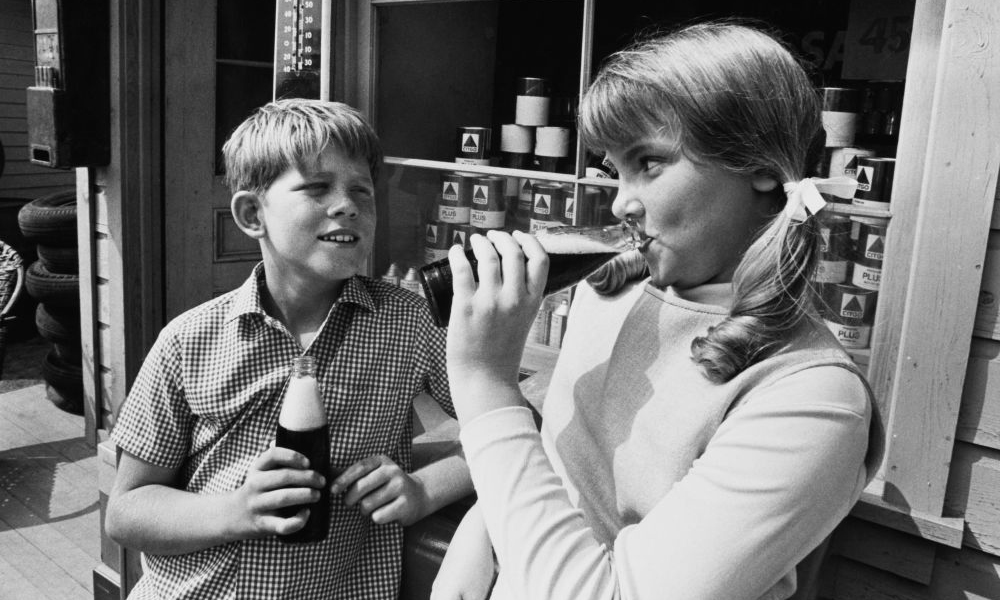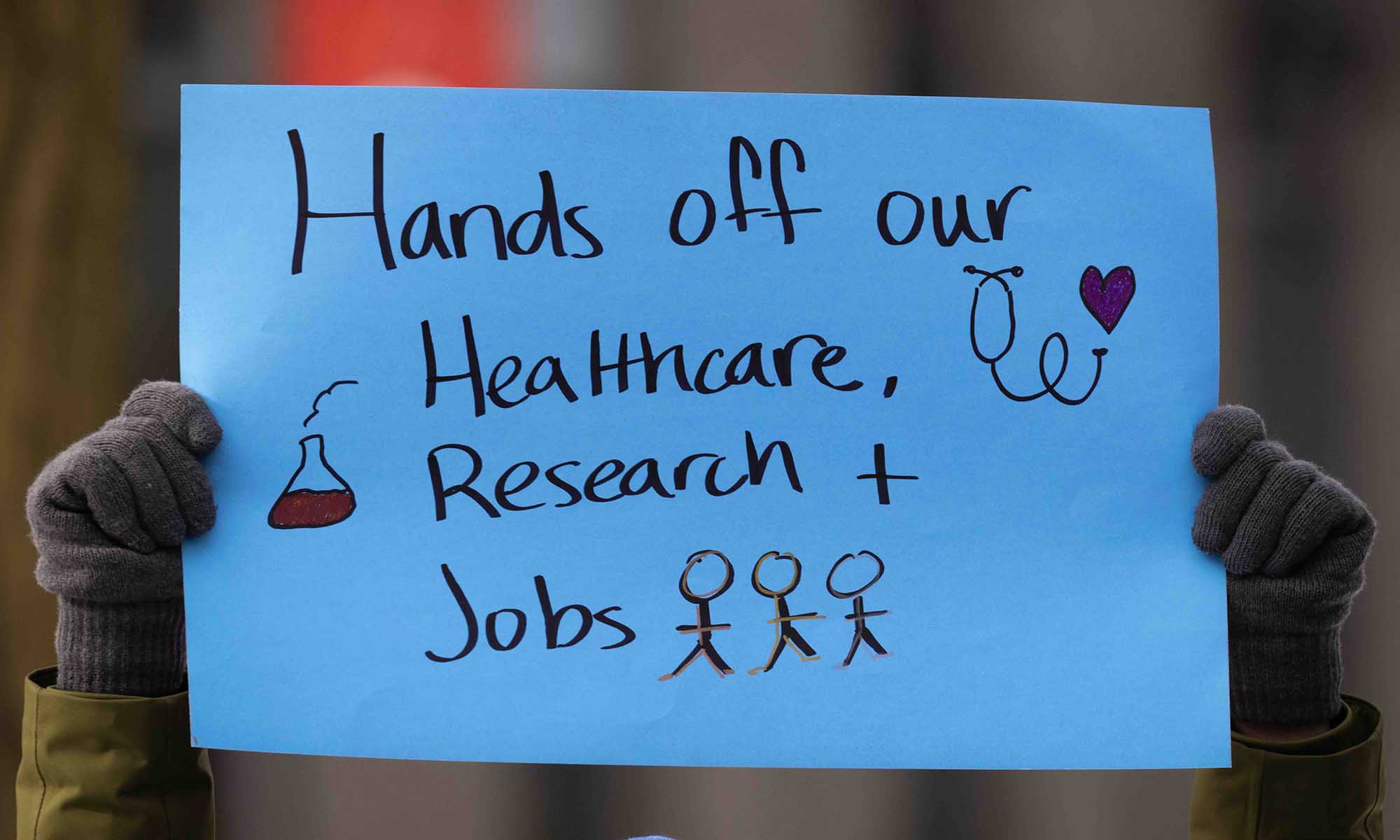A University of Rochester psychologist discusses how to find and foster love, including how to get the most out of online dating.
Psychologist Harry Reis knows a thing or two about romance. For nearly five decades, the Dean’s Professor in Arts, Sciences & Engineering at the University of Rochester has been studying close relationships, theories of intimacy, and personal attachment styles. A leading social psychologist, he was instrumental in launching the field of relationship science.
With his extensive knowledge—based on 45 years of research—the coauthor of the scholarly paper “Love: What is it, why does it matter, and how does it operate?” shares his science-backed advice on how to find—and keep—love.
Online dating versus traditional dating: which is better?
Rochester voices in the news
In February 2023, Reis appeared on Scientific American’s Science, Quickly podcast to discuss how romance affects our well-being.
NPR’s Shankar Vedantam, host of Hidden Brain, interviewed Reis in 2022 on what else—besides love—makes relationships thrive.
Dating apps or sites are not necessarily better equipped at introducing you to higher-quality candidates than meeting someone in public or through your social circles, says Reis. But they do give you a lot more options. Where else would you be able to meet two or three dozen people a week?
By now, the apps have largely given up on formulating algorithms that claim to match perfect couples. Instead, they offer dating options based on factors such as location, interests, life goals, and more, expanding the “field of eligibles,” as Reis calls it.
“If I were single, I would definitely be using those sites,” he says.
According to a recent report by the Pew Research Center, online dating is much more common among younger generations, with 53 percent of adults under 30 saying they have used dating sites or apps. One in five adults under 30 say they met their current spouse or partner on a dating site or app, as do about a quarter of partnered lesbian, gay, or bisexual adults.
Are marriages that result from online dating any better than other marriages? Reis doubts it, since studies point in both directions. The bigger issue, according to him, is that the research isn’t properly designed to answer this question in the first place. In addition, emerging and changing technologies for dating—virtual reality dating, for example—are outpacing research on the subject.
Reis’s main takeaway in the current age of digital dating? “You have to kiss a lot of frogs to find a prince,” he says. “And that’s fine.”
Getting the most out of online dating sites and apps
First, take some of the information in online profiles with a grain of salt, says Reis, who has studied the effectiveness of online dating. “Women, on average, claim to be a few years younger, and men say they’re a few inches taller,” he says, but these are just averages—they don’t mean that everyone is dissembling.
That aside—don’t reject candidates out of hand just because they don’t seem to share your interests, Reis and coauthors write in their critical analysis of online dating. Instead, weed out only those who are clear no’s from the get-go—those who live thousands of miles away, or simply live on the wrong side of your core values. Then, connect with as many possible partners and go on as many dates as you can, advises Reis. Make some semi-random choices and see where that takes you. Don’t make assumptions about the person simply based on what they claim in their online profile; rather, pick up the phone and find out what they’re like firsthand.
Keep in mind, too, that similarities matter to an extent but are far from a guarantee for happy relationships. In fact, connecting with someone who has different interests from your own can be a way of growing—something that psychologists explain via the self-expansion model. Instead of looking for a person who likes baseball as much as you do, try being open to something new. “If somebody loves ballet, and you don’t know much about ballet and have never tried going to a performance, that could turn out to be really interesting,” offers Reis.
But the biggest mistake in online dating? Putting too much emphasis on appearances.
Of course, attractiveness matters—that’s true whether meeting online or in person. But most people use looks as the main criterion when making choices online about whom they want to get to know better, thereby weeding out possible good matches by mistake.
The other thing people get wrong, according to Reis, is processing the information about another person in a superficial way, without really giving much thought to what the other might be like and might be interested in.
In short: slow down when swiping. Take time to read, think, feel.

The myths (and realities) of romantic chemistry
“Romantic chemistry is certainly elusive,” says Reis, who recently published a paper on interpersonal chemistry. “But it’s an exaggeration to claim it’s either there or not, based on a few minutes of interaction.”
Instead, chemistry is about forging a connection, a feeling of being on the same wavelength with another person. If someone opens up about what they find interesting and what’s important to them—and if the potential partner responds in a way that shows true listening—then a back-and-forth ensues.
“The feeling that the other person just ‘gets us’ is really emerging chemistry,” says Reis. That feeling, by the way, can be similar to what happens at the start of new (non-romantic) friendships.
More often than not, romantic chemistry emerges relatively quickly—although not necessarily instantly. Yet plenty of people go on first dates after connecting on a dating app, only to decide hastily that “we have no chemistry.” While there’s no magic number of minimum hours or dates to aim for, Reis recommends avoiding snap judgments.
Occasionally, chemistry between two people emerges much later. Some relationships can and do change, with a sense of connection turning a friendship into a romance. “Be on the lookout, but don’t expect magic to arrive out of thin air,” says Reis.
Avoiding today’s ‘suffocation model’ of American relationships
Keep your expectations grounded. Perfection is the enemy of good. If you want a partner for life, pay less attention to looks and don’t expect the impossible, advises Reis.
In the 1950s, he says, people frequently found their partner in their own neighborhood, or in their religious or social groups. But in today’s digitally connected world, people tend to have higher expectations for potential partners. “It’s been called the ‘suffocation model of relationships’ by researchers, in that we want the other person to be our sexual partners, our best friends, our confidants, our coparents, and our financial partners. We want them to be everything to us. And that’s an awfully high expectation for us humans to live up to.”
During one of Reis’s studies, a participant told him that they knew exactly what they wanted their future partner to be. And if the participant couldn’t find someone who was 100 percent like that, they’d rather be single.
In some ways, online dating has contributed to the false idea of finding a perfect match by serving up a seemingly endless supply of options. “I don’t think that 100 percent person exists for anybody,” Reis says. “If you are holding out for perfection, you may very well find yourself priced out of the market.”
Meanwhile, dating during the pandemic has created additional challenges. Seven in ten Americans, who were single and looking for a partner, said their dating lives weren’t going well, according to a 2022 Pew Research Center survey.
Small tweaks for big improvements to romantic relationships
You’ve found your partner for life (or, at least, for now). How do you make sure mutual love endures? What makes couples stay together—for months, years, decades, or forever—and remain happy and fulfilled? Plenty has been written on the topic in books, magazines, blogs, and other outlets. But what does the research say?
One of the critical factors, according to Reis, is the ability to resolve disagreements in a cooperative and supportive way without creating further hurts. It’s “a huge one” that’s been shown in just about every study that’s been done on the topic.
Another important strategy is to share positive events with your partner. Reis has studied both the intrapersonal and interpersonal benefits—that is, the advantages for both the “sharer” and the partner—of communicating positive experiences and letting your partner know that you are excited for them. So, why does this strategy work? Because we all like when good things happen to us—such as getting a promotion at work, passing a big test, setting a personal best in bowling or at a 5K race—and we want to share that experience with our partners.
In a set of experiments, Reis found that when people talked about personal positive events with others, they felt even happier, beyond simply the uplifting effect of the event itself. And when a partner responded enthusiastically to the sharing of the other’s good news, the relationship fared better with increased well-being for both partners, greater intimacy, and higher daily marital satisfaction.
Research shows that another seemingly trivial, yet nonetheless effective, way of building connections with a partner is having the “how was your day” conversation, where partners listen to one another, ask questions, allow for elaboration, and show empathy or enthusiasm.
“The point is that you’re really listening to your partner, that you’re really engaging,” says Reis. “It’s not so much about the issue of the conversation as it is about the engagement, the sense of making time for each other, and connecting in those moments.”
When people first start dating, connecting happens naturally and frequently. As time goes on—and especially once couples are married or have been living together for a while—it’s easy to lose that attentiveness in the daily humdrum of work, household responsibilities—and for some—the raising of children. But it’s these little things that make a big difference, says Reis, and that contribute to feeling understood by your partner.

The importance of shared hobbies
While spouses (or partners) don’t have to be clones of each other or do everything together, they need to be on the same page about where they want their lives to go. Part of that means enjoying some degree of shared recreation. “If you’re always doing things separately, you’re not building connections,” Reis points out.
There’s important research on so-called “novel” and “arousing activities,” which has shown that couples do well when they are taking up a new hobby together. It typically should be something that’s a bit more active, says Reis, like learning to ski, taking cooking lessons, or trying dance classes together—something that introduces an element of novelty for both participants.
Particularly in this COVID era, many couples feel their lives have become stagnant. “The same thing every night: they have dinner and then they watch Netflix. That can get awfully tiresome,” says Reis.
Doing new things together that are fun and interesting can help keep a marriage or a partnership vital. “Even something as mundane as going to the movies together and then talking about it,” says Reis, pointing to research by his Rochester colleague Ronald Rogge, which shows that couples who watched romantic comedies together and talked about them afterward reduced their risk of divorce.
The evolving nature—and science—of love
Even as social psychologists and others continue to learn more about the intricacies of human love and intimacy, it’s important to remember that research in this area is ongoing—and increasingly reflective of changing norms and practices, from virtual reality dating to ethical non-monogamy.
Reis notes that much of the literature on relationship research to date is predominantly based on “WEIRD samples,” participants who belong to groups that are western, educated, industrialized, rich, and democratic. But, he says, more work is being done with married same-sex couples—and so far, the findings among same-sex couples seem, with a few exceptions, very much similar to those of mixed-sex couples.
The one thing couples can do right now to improve their relationship
It depends, of course, on the strengths and weaknesses of each particular relationship. But if he had to pick one thing, Reis says, it would be this one: “Make it clear that your relationship is one of your highest priorities. And really act on that. Make connecting in the relationship not the thing you do after everything else is done.”
How do you signal that importance? Set aside time for a regular date night, for example. Really talk and listen to each other, perhaps while doing a chore together—such as washing the nightly dishes or walking the dog. Send your partner an affectionate text during the day to let them know they are on your mind. And don’t forget the importance of physical affection.
Beware that problems have a tendency to swamp us, he cautions. “The difficulties, the stresses, the disagreements, all tend to dominate our attention. That’s what we humans do—we pay attention to what’s going wrong,” says Reis. That negative bias can lead people to forget what was fun about their relationship in the first place.
“Building in those little positive moments is an easy way of reminding oneself and one’s partner that there’s something good here,” says Reis.
Read more
 Cut to the chase: Can sex help start a relationship?
Cut to the chase: Can sex help start a relationship?
Researchers have demonstrated how sex and sexual desire play a major role not only in attracting potential partners to each other, but also in encouraging the formation of romantic relationships and emotional bonding.
 Why ‘playing hard to get’ may actually work
Why ‘playing hard to get’ may actually work
“Playing hard to get makes it seem as if you are more in demand—we call that having higher mate value,” says psychologist Harry Reis, who collaborated on a study that examined the mating strategy.
 Reducing the temptation to cheat in relationships
Reducing the temptation to cheat in relationships
Adopting your partner’s perspective may reduce your temptation to cheat, according to research by Gurit Birnbaum at Reichman University in Israel and Rochester’s Harry Reis.





